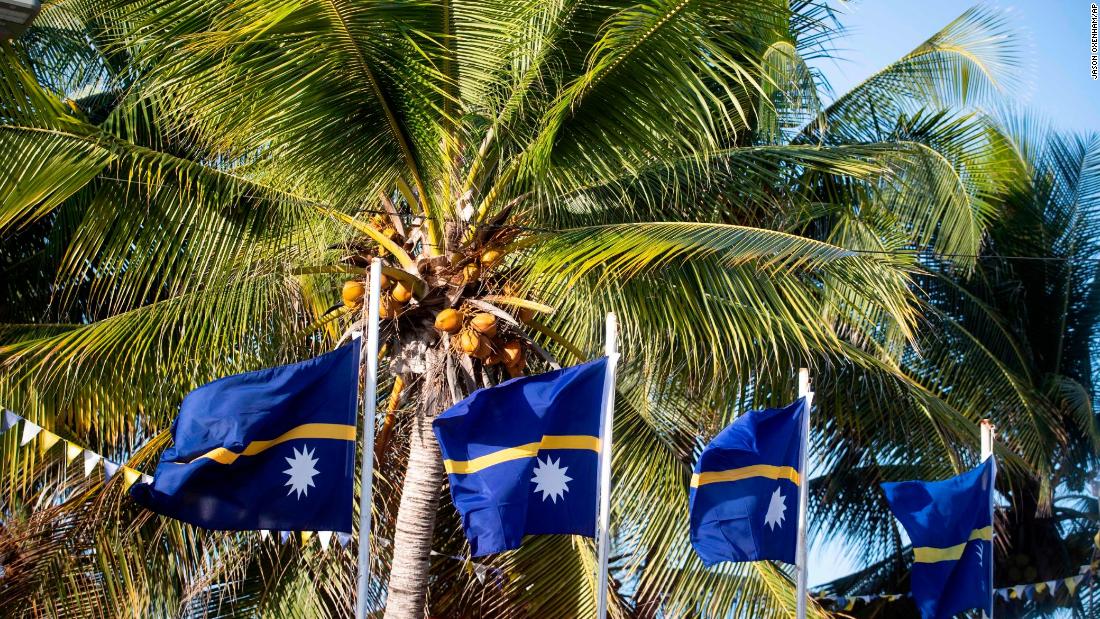
TVNZ correspondent Barbara Dreaver was interviewing a refugee when she was picked up by police and detained for several hours before being released, the broadcaster said.
The tiny Pacific island of Nauru is home to one of Australia's controversial offshore detention centers, where asylum seekers, including children, who arrived in Australian waters by boat were sent five years ago for processing.
Many have become so desperate to get off the island that children as young as seven and 12 have been refusing food and water and attempting suicide, according to a recent report.
New Zealand's Ministry of Foreign Affairs and Trade said Dreaver was believed to have breached the conditions of her visa, which restricted journalists to only reporting on the forum itself.
Nauru has made it increasingly difficult for international media to report on the refugees, whose arrival on the island was part of deal struck with the Australian government. It charges media a $5,800 nonrefundable visa fee per application, with no guarantee that any access will be granted.
Reporters with Australia's ABC were told not to bother applying for visas to cover the Pacific Islands Forum after officials in Nauru deemed their coverage biased against the island.
In a statement, Amnesty International's Minar Pimple said that move was a "clear attempt at suppressing critical coverage of Nauru's government and its inhumane treatment of refugees."
"The country's current arrangements with Australia on refugee policy are a matter of journalistic and public interest. Going to these lengths to keep certain media out of the country is both an arbitrary, unacceptable restriction of press freedom and a telling sign of the government's determination to keep the appalling situation of refugees in Nauru out of the news," Pimple said.
"Hosting a pan-regional event like the Pacific Islands Forum comes with the responsibility of opening yourself up to the region's media. The Nauru government must not dictate who should and shouldn't be attending, nor should it be issuing guidance on what journalists can and cannot report."
In a statement, New Zealand Prime Minister Jacinda Ardern said she was pleased Dreaver had been released.
"This government believes in freedom of the press, throughout the world, and of course that includes the entire pacific region," added Ardern, who is en route to Nauru for the forum. She said she would raise the issues with officials there.
This isn't the first time Dreaver has run into trouble with a Pacific Island government. In 2008 she was detained on arrival in Fiji to cover an ongoing dispute between the island's authorities and New Zealand. She was later deported and spent eight years blacklisted from covering the country.
Refugees in dire straits
Official Australian statistics show that 219 people -- 182 men, 23 women and 14 children -- are in Immigration Detention Facilities (IDFs) on Nauru. This number does not account for hundreds of refugees and asylum seekers brought to the remote island by Australian Border Force who are no longer officially in custody but remain on the island.
A joint report released Monday by the Refugee Council of Australia and the Asylum Seeker Resource Centre said people send to Nauru are "among the most traumatized (experts) have seen, even more traumatised than those in war zones or in refugee camps around the world."
Refugee advocates are pushing for the issue to be put firmly on the agenda at the Pacific Island Forum, but tweets from the Nauru government on the weekend suggest that's not likely to happen.
Using the hashtag #FakeNews, the Republic of Nauru account said there was no detention center on Nauru and suggested children were being "manipulated into self-harm" by their families, supported by activists.
Bagikan Berita Ini














0 Response to "New Zealand journalist detained in Nauru covering Pacific Islands Forum"
Post a Comment